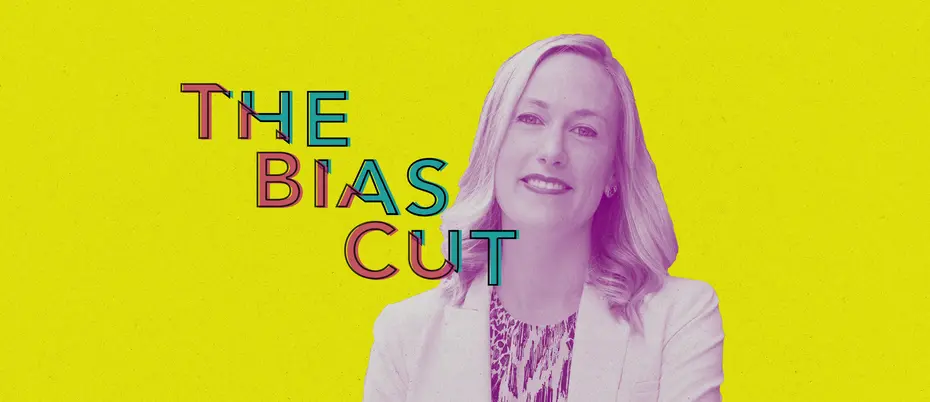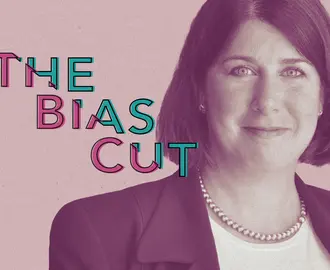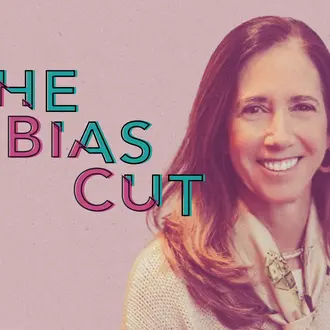The Bias Cut
Doing the math on the emotional and financial burden of menopause
Women shouldn’t have to single-handedly shoulder the emotional and financial burden of menopause.
A 2021 women’s leadership study from LeanIn.org and McKinsey & Co. found that American women held 41% of corporate management positions, and women continue to fight underrepresentation when it comes to board positions and CEO roles. They also face gender bias, harassment, and opposition to their management styles.
Here’s how one MIT Sloan alumna has pushed back on those statistics and used what she’s learned along the way to help those behind her.
Alessandra Henderson, MBA ’16, co-founder and CEO of digital health platform Elektra Health
In what ways is your professional life as a woman in the workplace different from how you imagined it would be when you started your career?
When I started my career, I defined myself as the “person behind the person.” I took joy in supporting leaders to enable them to succeed. As I gained experience and confidence over time, I’ve come to realize that I enjoy and get energy from being the leader out in front. It helps that I have the privilege to build in a space where I can advocate for a cause that I care so deeply about. It’s not about taking up all the air in the room, it’s about finding something that fires you up and championing that cause day in, day out.
Who was an ally or mentor for you as you’ve navigated your career? What made that person stand out, and how specifically did they help you get to the next level of your professional development?
Bill Aulet, executive director of the Martin Trust Center for MIT Entrepreneurship. In addition to taking Bill’s classes at Sloan, I also had a chance to be a teaching assistant for two of his classes. Just before graduation, I pitched Bill to create a new role for me as a New York-based liaison for the MIT entrepreneurship community. Bill not only offered me the position, but he helped me build and found the MIT NYC Startup Studio, the New York branch of the delta v accelerator program. Bill’s belief and trust in my abilities inspired me to dream big and build great things.
The second person I credit as an ally and mentor is Heather Hartnett, general partner and CEO of startup studio and investment firm Human Ventures. Heather saw founder potential in me before I did. As a colleague, Heather opened up the Human Ventures network to me. As an investor, she was a critical partner in helping envision and map a path to the future of Elektra Health by providing strong community-building resources, connections, introductions, and real founder support that allowed for greater innovation and for Elektra to soar.
Can you give an example of a time you’ve experienced or witnessed gender bias? How did it affect you professionally? What impact did it have on your job?
In the past, I have witnessed inequity: Instances where female employees were assumed to not possess a particular skill because of their more bubbly personality, or primarily female teams offered lower entry-level compensation because of their comfort level with negotiating. These episodes have sparked the underdog fighter in me. I have called out management and spoken my mind. Thankfully, the people I worked with realized the bias in their underlying thinking and rectified the situation by reconsidering the compensation offer, and calling out their unconscious bias.
Certain industries are as male-dominated as ever. Where do you see progress in your own professional experience and how can we scale that throughout your industry?
There are a growing number of entrepreneurs, investors, and operators who have put women’s health on the map. The acceleration of digital health innovation combined with prominent female voices has made the past several years ripe for this disruption. I see this momentum continuing through various health care, women’s health, and female-focused programs and networks that I’m a part of (Luminary, The 10th House, etc.). These organizations have been very vocal and proactive in supporting women across various roles and industries.
Elektra’s mentors, strategic partners, and advisors have set the foundation for creating a working environment where all barriers to progression are removed and we bring our best selves to work each day. If we take the time to provide other women entrepreneurs with the opportunities to develop similar experiences by either providing a quick introduction or referral, we’ll be able to scale their network and founder journey.
How do you support women coming up behind you?
I’ve become an advocate for other female entrepreneurs who are building women’s health solutions, through direct one-to-one support and by investing in them at the earliest stages. This is also true of our mission and what we’re building at Elektra Health.
Although we’ve known about the challenges women face around menopause, it is still shocking to see how many women in the United States are feeling such extreme symptoms in the workplace and how deeply they desire better support and resources. In our 2022 Menopause in the Workplace report, 87% of women reported experiencing symptoms while at work. What’s significant is that these menopause symptoms not only negatively contributed to their mental health, but a majority of women also reported concern around the financial burden of managing their menopause care as well as missed days of work to manage symptoms — often during the height of their careers. Sixty percent of women responded that they would find menopause support from an employer helpful.
The report makes clear the importance of providing better education, support, and resources to ensure that women do not shoulder the emotional and financial burden of menopause alone.
What is the most difficult lesson you’ve learned in your professional life? In what unexpected ways did you grow from it?
Making progress amidst the chaos. This year has been full of challenges, and staying focused during a time of constant change is one of the most important tasks. You can be so easily distracted, and finding the balance and focus to create an exciting future can get lost and overwhelming. This is where relying on your team and partners are important. Taking the time to communicate constantly and provide reassurance, a sense of stability, and direction is often what helps you see things clearly and gets your team the most excited about what you’re building.
Read next: Coaching women to be more confident with their financial goals




